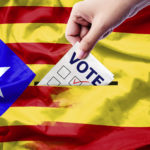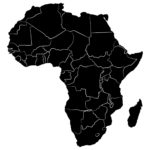May the First in Moscow, Warsaw, Prague, Budapest, East Berlin or Bucharest. People, i.e. workers and peasants with flowery tributes and posters are marching along the tribune atop which they can see their beloved leaders, first or general secretaries of the communist or socialist workers’ or people’s parties, surrounded by trusted and battle-hardened comrades of the international Marxist-Leninist movement. The radiant people in the parade are waving red flags and carrying huge portraits of the holiest of the holy – Marx, Engels, Lenin – hand in hand with large puppets of the damned: Josip Bros-Tito, Harry Truman, Konrad Adenauer and many others. The demonstration is held in support of, yes, you guessed it right, peace and democracy as well as social justice and against such backward ideas as bigotry, fascism, Nazism, nationalism, religious faith, tradition, authority (Marx, Engels, and Lenin excluded), and the traditional family.
It’s not a May Day parade this time. It is a carnival parade. And it is not Moscow, Warsaw or East Berlin in the late forties or early fifties. It’s fifty or so years later in the West. In Dusseldorf, to be precise. A similar parade held every year and well-attended by the citizens of, as they firmly believe, a free world. A parade in favour of, yes, again you guessed it right, democracy, progress and freedom. A parade against those who endanger these values. Against the present-day Trumans, present-day Adenauers, the present-day Titos, traitors to the sacred cause. Continue reading

















